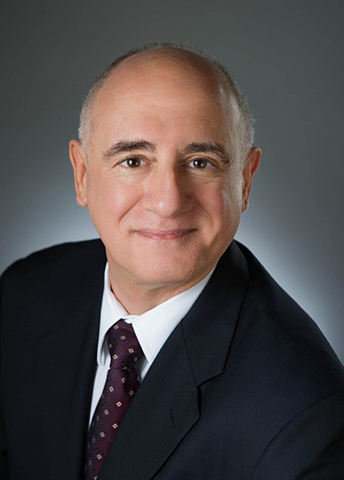 Dr. Scott Arbaugh
Dr. Scott Arbaugh
Faculty Member Washington University
Director, Geriatric Day Treatment Programs
Alton Memorial Hospital (Alton, IL), St. Joseph’s Hospital (Highland, IL) and St. Joseph’s Hospital (Breese, IL)
Speaking Up For the Silent Majority
How the proposed changes to Medicare Part D will harm middle-class seniors
As a geriatric psychiatrist in private practice, I see many middle-class patients. These are folks who have worked hard their whole lives and saved for their retirement; their homes and cars are paid for and they have a few dollars in the bank. Medicare covers the bulk of their healthcare expenses and many can afford some level of supplemental coverage.
This is not the population we’re used to seeing in crisis. Yet more and more, these are the people who are going without appropriate mental health medication and, as a result, facing destabilization and serious mental health challenges. That’s because for the first time in my 25 years of practice, I’m seeing middle-class seniors unable to get their medications because of cost. Restricted and tiered formularies have put some medications out of financial reach for many, and a good number of my patients are choosing to forego the recommended—and most-appropriate treatment—rather than incur additional out-of-pocket expenses.
Very often my patients will ask me to prescribe a cheaper medication, even in cases where the patient and I both know they do better on the more-expensive product (whether it be a branded drug or more-expensive generic). And in situations where there is no cheaper alternative, they simply don’t fill the prescription. Sadly, many patients seem resigned to the fact that their health will suffer; but when faced with the choice of buying food or buying costly medication, they choose food.
My concern with the proposed Medicare Part D rule change is that it would further restrict seniors’ access to important antidepressants and antipsychotics—medications that have proven to be effective—and force more seniors into mental health crisis.
Not apples to apples
This is not to say that fiscal responsibility has no place in medical decision making. Who of us would oppose prescribing a drug that costs $4 a month in place of a drug that costs $1,000 a month if they both do the same thing? I advocate for responsible prescribing and know that many of the generic medications are good medications, and they work very well for many people.
But, and this is what makes psychiatric formularies so unique, not everyone responds equally to every medication. When it comes to mental health drugs, there are no apples to apples; every brain responds differently to medication, and while a less-expensive or generic may work well for some people, it may not work at all for others. Antidepressants and antipsychotics are not interchangeable the way blood pressure or cholesterol medications are, and when we find a drug that works well for someone, we must protect the patient’s access to it.
Coverage with no access
We protect patients’ access not just by making medication available, but by making it easily available. With fail-first policies, which require patients to work their way through a series of medications before receiving approval for a more-expensive drug, the process to obtain authorization can be cumbersome and time consuming. So much so that providers are discouraged from pursuing authorization and many patients choose to forego the request altogether.
For example, if I want to help a patient receive authorization for an antidepressant, I or one of my staff must submit paperwork detailing the patient’s failure with the formulary’s first-line antidepressants. Oftentimes, the request forms are returned to us asking for additional information, such as the exact dates of failure. It can take hours of staff time to track down the information, if we have it at all. A process this cumbersome risks putting convenience ahead of what’s best for the patient, and I fear we will see more of that if the Medicare Part D changes are approved.
Pennywise, but pound foolish
Having specialized in providing psychiatric care to older patients my entire career, I know that policies that unduly restrict access are pennywise, but pound foolish. For while there may be some immediate cost savings if we limit seniors to less-expensive antidepressants and antipsychotics, those savings are quickly negated if a patient becomes destabilized as a result of a medication change. I have seen patients who were stable for years deteriorate when switched to a new medication. Some end up requiring more physician visits as they adjust to new medication; some end up needing a day-treatment program; and some end up in crisis, requiring hospitalization. All of that costs our health system much more than simply providing the medication that works best for each patient.
Another cost factor to consider is that there is also a lot of co-morbidity in depression. When people are depressed, they have higher rates of heart disease and diabetes. When we limit seniors’ access to the full range of antidepressants, we risk an increase of depression among seniors, and when we do that, we are likely to see rising rates of other costly, chronic health conditions.
Why we must speak up
Many of my patients are people who grew up in a time when you work hard, you pay your bills, you don’t complain and you don’t look for handouts. These middle-class seniors, the great silent majority, are not calling their congressmen and they’re not raising Cain about losing access to the drugs they know and I know work best. They seem resigned, but I think we need not be. We must speak up and defend this vulnerable population, for restricting the Medicare Part D mental health formulary will have a profound and negative impact on millions of seniors and on our health system as a whole.
Your Turn
- Have you ever had to jeopardize your health and go without appropriate medication due to lack of funds to purchase it?
- How will you support Medicare recipients in retaining their access to quality mental health care?









Connect With Us